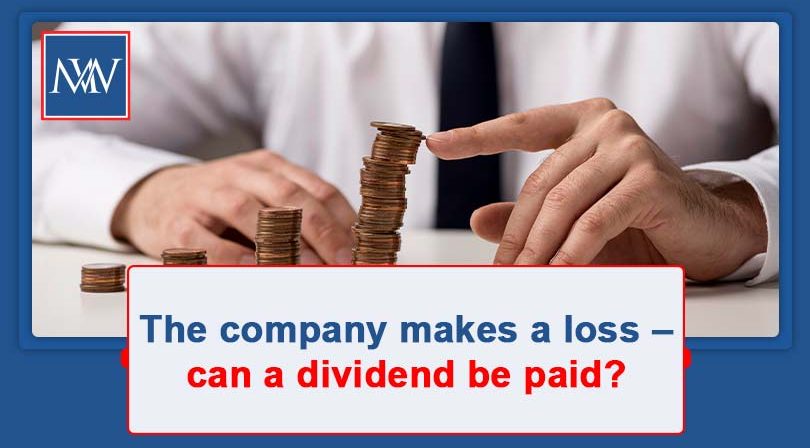
The company makes a loss – can a dividend be paid?
Anyone who invests in a company is taking a chance, hoping that the directors, as representatives, will use the money to increase the company’s profit. In return for taking this chance, a shareholder receives ‘payback’ usually as a share in the distribution of profits in the form of a dividend. payment is not automatic.
For a dividend to be paid, a company needs to have sufficient ‘distributable profits’ to cover the dividend at the payment date. ‘Profits’ in this instance are ‘accumulated, realized profits’, less ….accumulated, realized losses’ i.e. accumulated profits from the current and/or previous periods after covering any losses. Therefore, only dividends paid out of accumulated profits can be made. Dividends paid where there are no ‘distributable profits’ or made out of capital are termed ‘illegal’ under the Companies Act 2006.
How do you know a dividend is ‘legal’?
Whether a dividend has been paid ‘illegally’ may only come to light when the final accounts are prepared for that period. Only then can it be confirmed whether sufficient ’distributable profits’ were available when the dividend was paid. There is a statutory requirement for full accounts to back up the payment of a final dividend, but there is no such requirement when making an interim dividend. However, the advice is to prepare management accounts before declaring any dividend just to ensure sufficient distributable profits are available to support that payment.
Tax implications of ‘illegal’ dividends
Should the dividend be found to have been issued ‘unlawfully’, HMRC will treat the dividend as not being received and the shareholder will be required to repay the amount paid. The time limit for recovery of dividends is six years from the date of declaration or the declared payment date, whichever is later. The only time such a dividend will be treated as a distribution and the shareholder is not required to repay is if the shareholder was unaware of the illegality of the payment and had no reasonable grounds to believe that the dividend was so. However, lack of knowledge may be difficult to prove with director/shareholder dividend payments in owner-managed companies.
The tax charge payable by the company may not be the only tax implication. Should the total of all outstanding loans from the company exceed £10,000 at any time during a tax year, then the director is considered to have received a benefit in kind from their employment unless interest is paid.
What are the alternatives?
- If cash is needed but cannot be paid via a dividend due to the above, an alternative is a withdrawal as a salary or bonus, but this comes with extra tax and NI costs.
- If payment can be made partly in cash and partly for services or goods that could be normally settled personally, such arrangements count as taxable benefits in kind. Such benefits in kind may be taxable at a lower tax rate than 33.75%.
- A company can repay share capital and share premium by crediting the company’s profit and loss account, thus allowing the company to pay a dividend where which creates positive balance sheet reserves..
Where illegal dividends are discovered, a note should be added to the year-end accounts. The director must immediately cease taking any further dividends until the company has accumulated future distributable reserves.
Partner note:
CTA 2010, s 455
CA 2006, s 847
Limitation Act 1980, s 5
For more information, Book a Free Consultation
Need Accountancy Support?
For information on bespoke training, or if you have any other questions for Makesworth Accountant, please fill in your details below
















 151
151